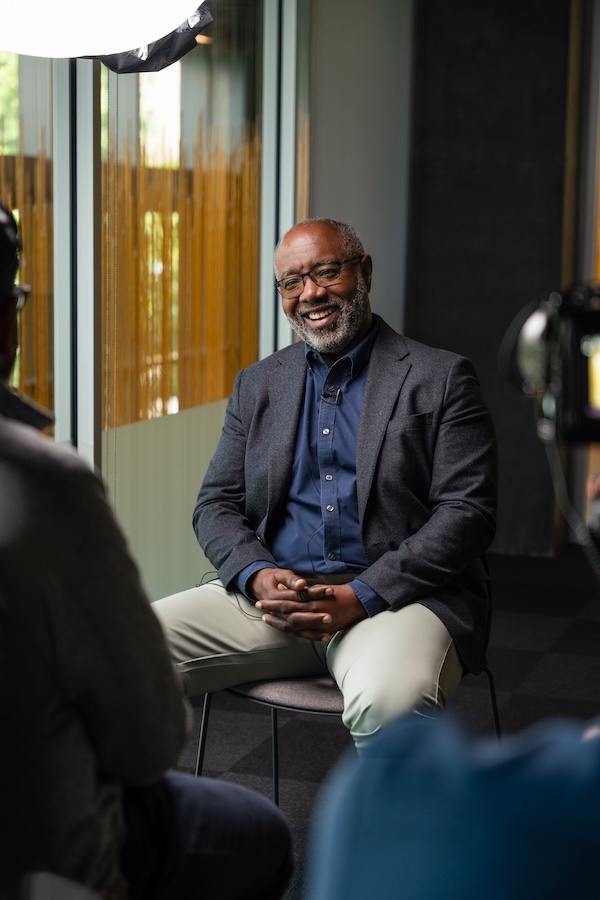“When I finished the [MHA] program, I probably felt as good about myself as a person in terms of my ability to be successful in this world as I ever had. What the program did for me was give me a foundation to build on that was solid. The rest was up to me to figure out how to use that foundation to drive my career forward.”
-Marvin O’Quinn, MHA ’79

O’Quinn recently retired as the President and COO for CommonSpirit Health, a faith-based, nonprofit health care ministry operating in 140 hospitals and more than 1,500 care sites across 21 states. He served as the COO of Dignity Health, the president and chief executive officer of Jackson Health System (Miami) and executive vice president and chief operating officer of Atlantic Health System (Florham Park, N.J.). He also held senior positions with New York Presbyterian Health System, Providence, Legacy Emanuel Hospital and Health Center (Portland, Oregon.), Valley Children’s Hospital (Fresno, California.) and Harborview Medical Center (Seattle, Washington).
His background inspired not only the work O’Quinn did, but his drive to achieve. Being one of the few Black people in academia in the 1970s or in health care settings with predominantly white leadership, O’Quinn said he felt like he didn’t always belong.
“I’ve always felt like I wasn’t quite good enough,” O’Quinn said. “I had to work that much harder, in order to make sure that people saw me for what I could give to the organization. If you honor [that feeling], it’s a hell of a motivator. It will drive you. It’ll push you.”
More than half of O’Quinn’s career has been spent with institutions that prioritize care for low-income populations. An MHA degree was particularly helpful for this because hospitals are not like other businesses, O’Quinn said. They are instead both a business and a social service. The people who the hospital serves may not be able to pay, or may have insurance that will greatly underpay.
“You’ve got to understand how to develop programs that are going to allow you to serve those populations and still be financially solvent,” O’Quinn said.
This type of work involves caring for populations beyond what is billable. Some of the most meaningful work O’Quinn remembers is when his team worked on an initiative to help prevent human trafficking. At the health care organization, they taught emergency room physicians and staff across 35 hospitals how to look for signs of patients who were being trafficked. This program was able to intervene and rescue people who had been trafficked and get them help and successful careers.
“That’s all part of running a hospital,” O’Quinn said. “You’ve got to be a leader, not just inside the hospital, but a leader in your community.”
Click here for the full article.